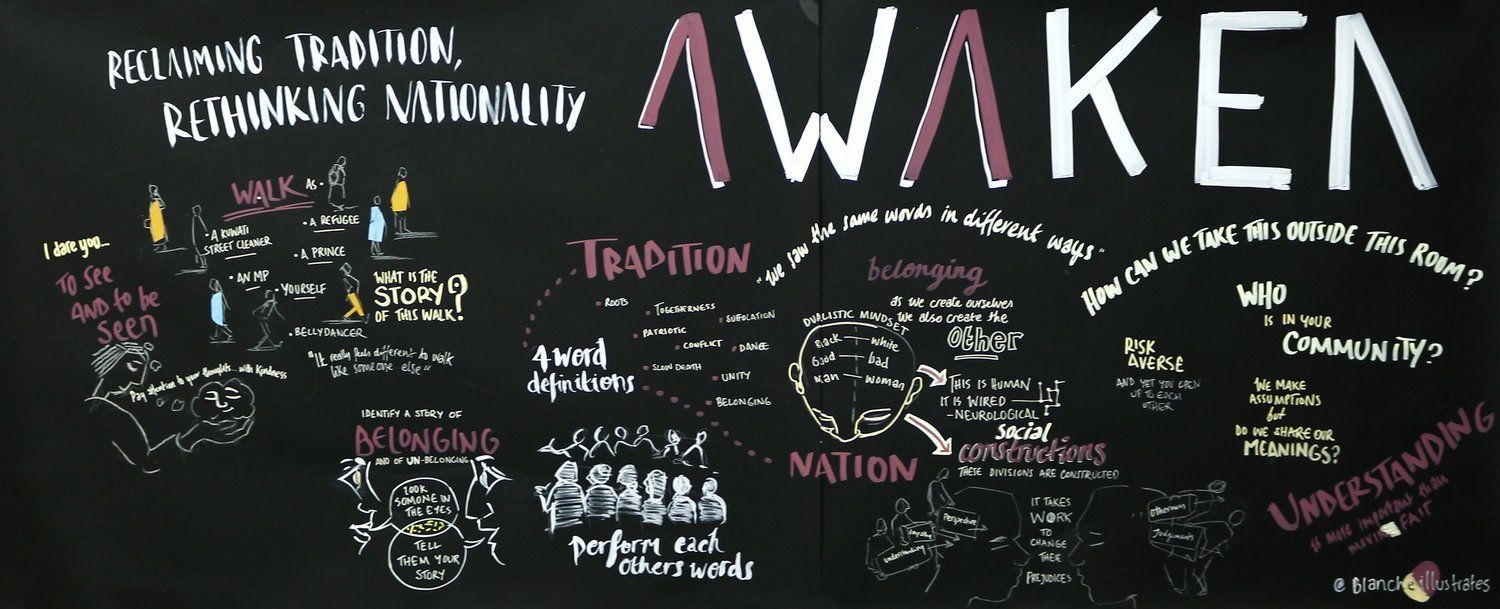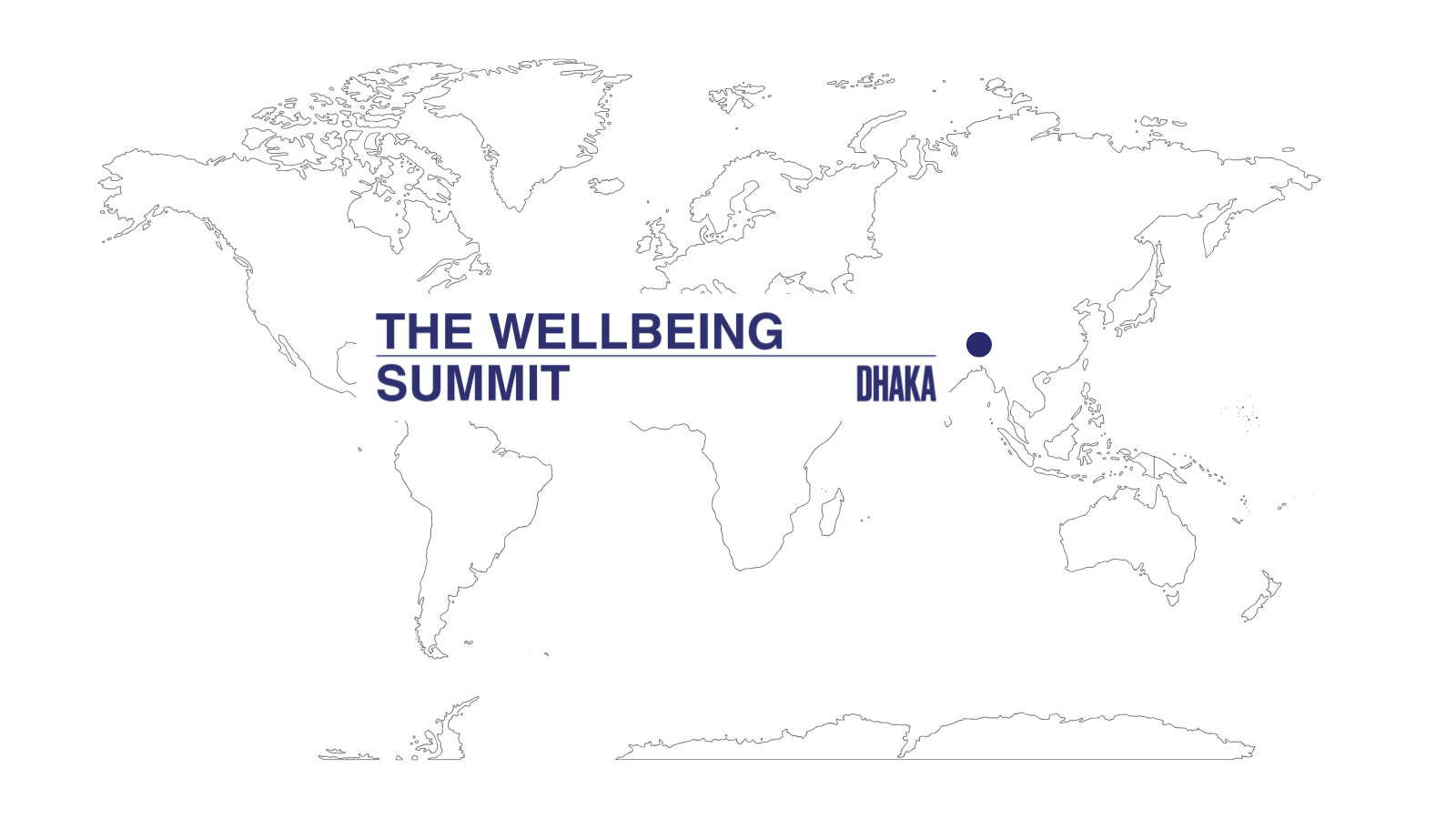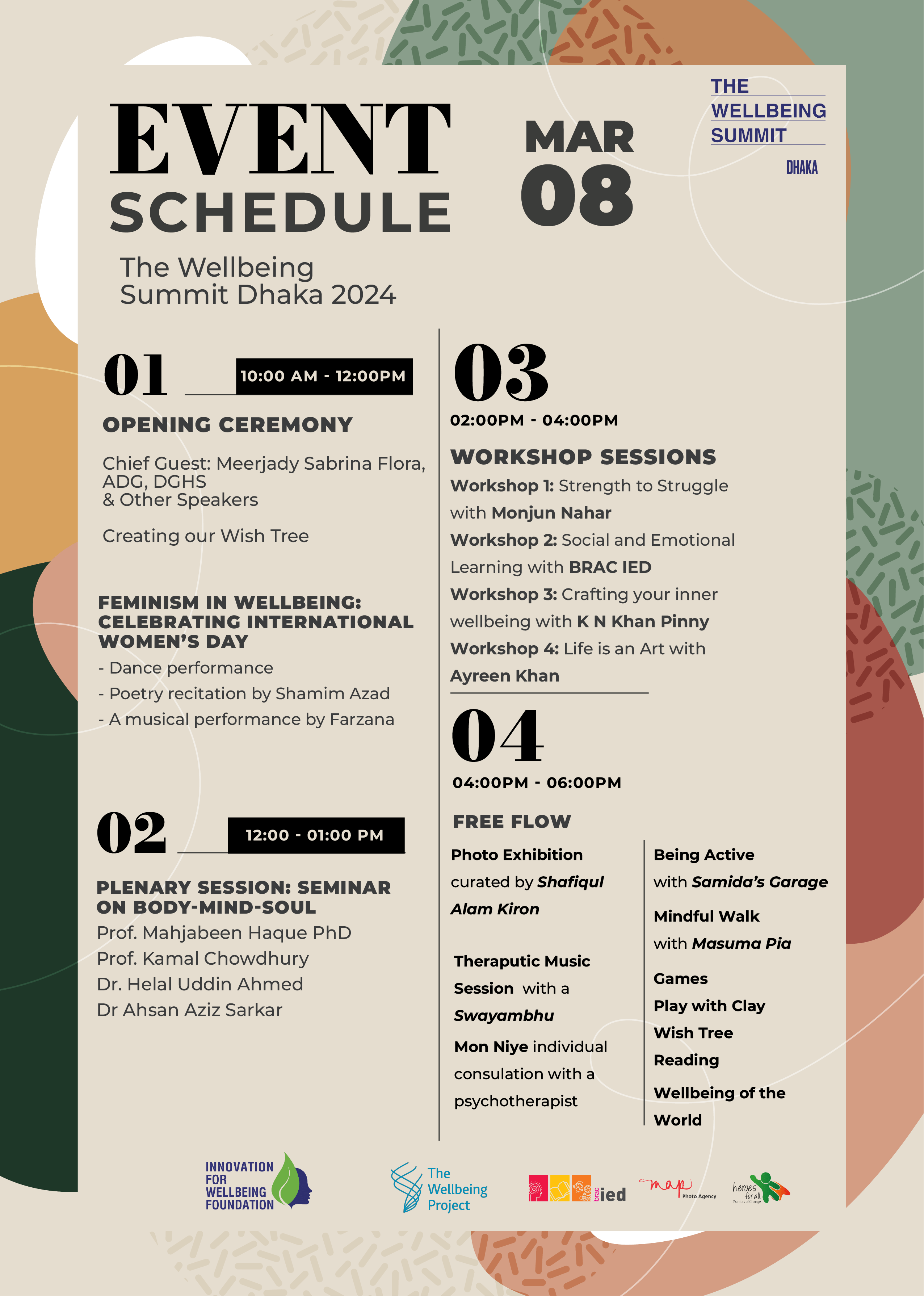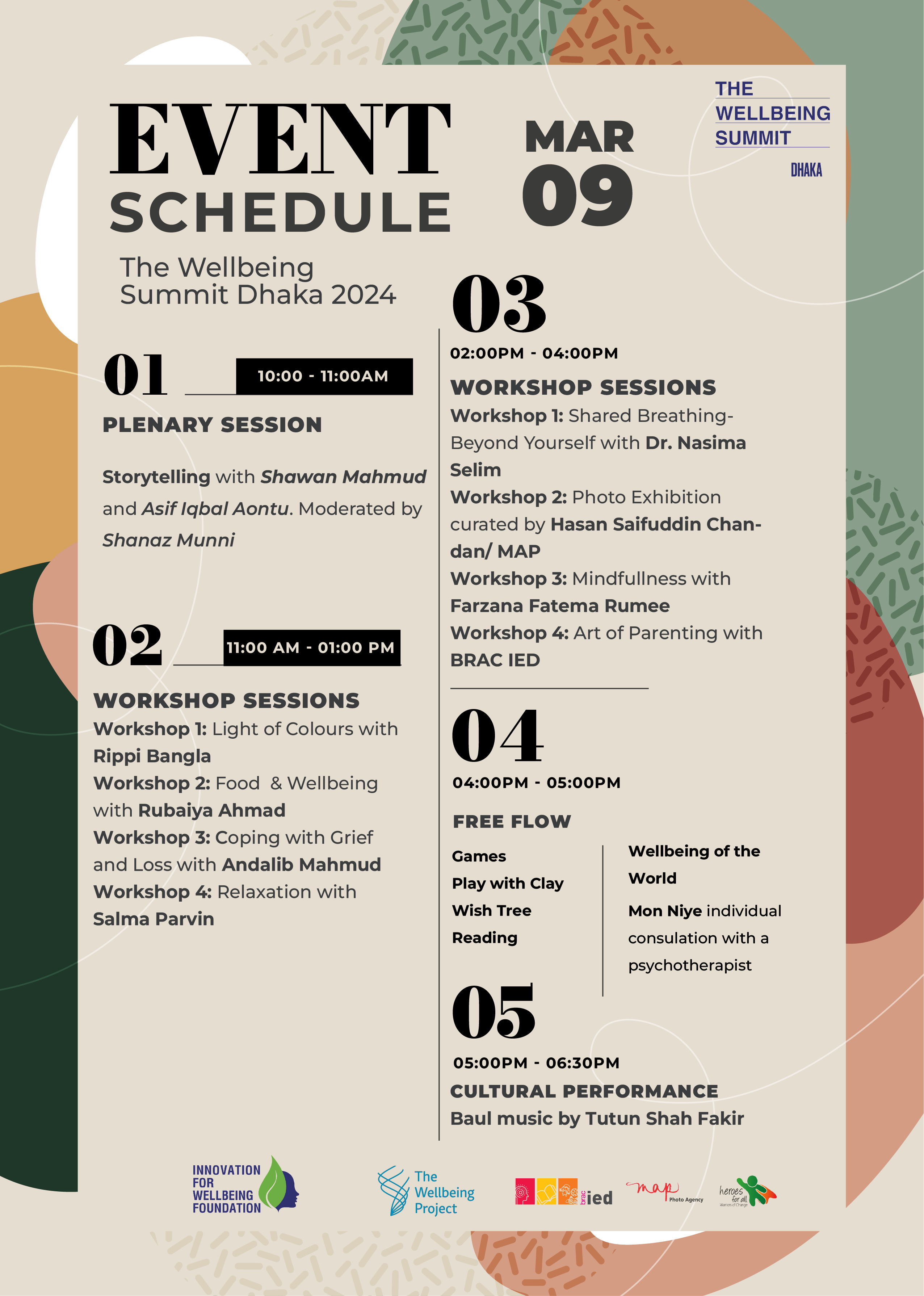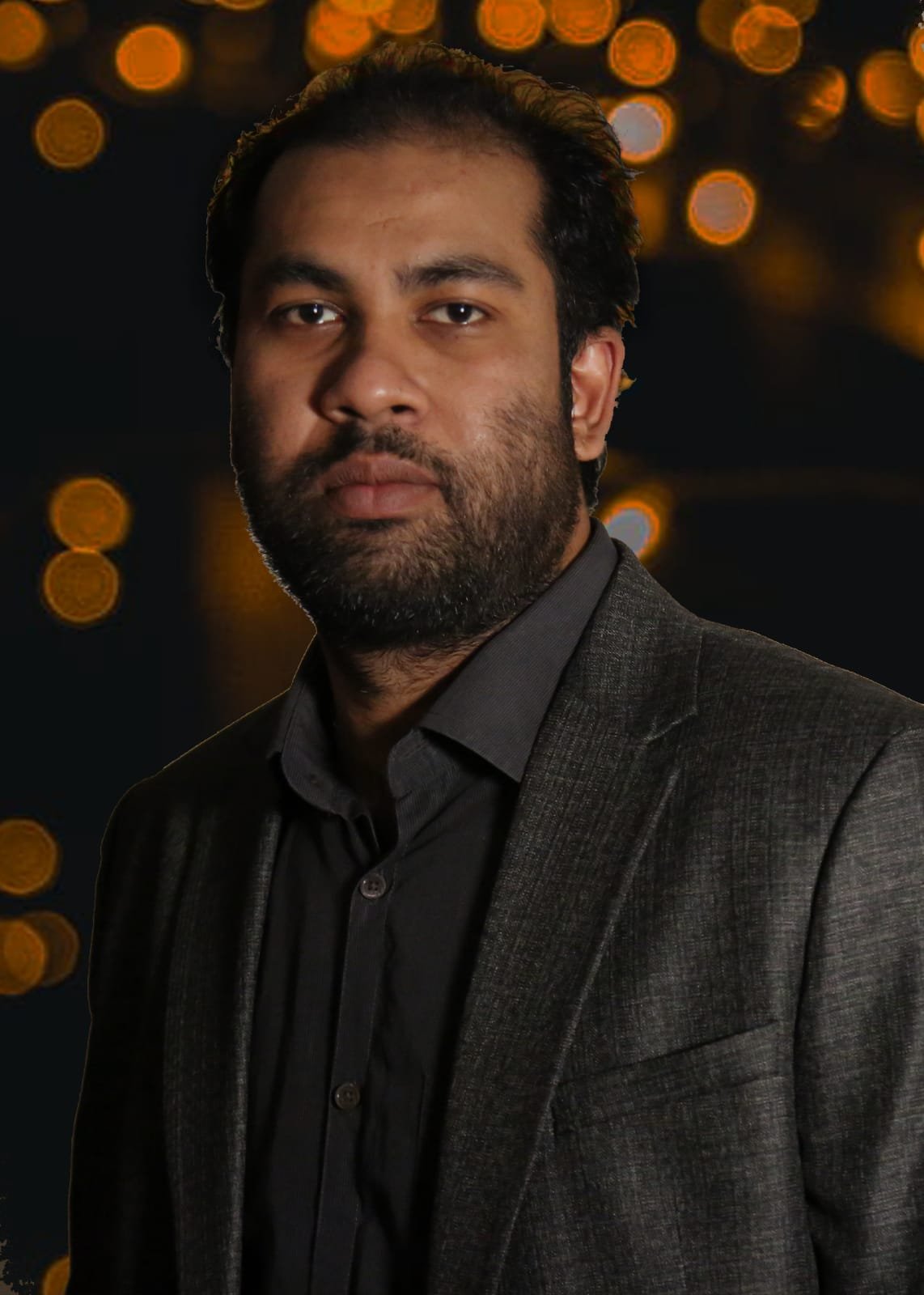Strengthening Community Resilience in Kuwait with Storytelling Strengthening Community Resilience in Kuwait with Storytelling
Insights from en.v’s Eleanor Burton and Mohammed Marafi
With a vision of a united, compassionate and resilient society, a small organisation is making a big impact on collective wellbeing across the Gulf states.
en.v facilitates positive social transformation within Kuwaiti society with an integral focus on empowering Kuwait’s migrant population – as well as youth and other traditionally silenced communities – through storytelling. Recognised by the International Labour Organization (ILO) for its impactful work supporting the human rights of migrant workers, en.v practices community-building through socially responsible ways. We talked with Eleanor Burton, en.v’s training and relationship manager, and Mohammed Marafi, en.v’s programs manager, about their use of storytelling as a tool for social transformation. Here’s how they do it.
Storytelling to Build Trust, New Narratives, and Healing Bridges
As an organisation committed to the collective wellbeing of communities in Kuwait, an integral focus for en.v is on the country’s migrant population, whose wellbeing is significantly impacted by the grave consequences they often face working under the Gulf labour market’s kafala system. Broken trust, mistreatment, and abuse are common, as are trauma and mental health struggles. Beyond legal frameworks, cultural attitudes in Kuwait have helped normalise the effects of the kafala system: with certain long-held beliefs about migrant workers and commonplace employment practices, de-facto segregation and a deeply ingrained power balance are the norm.
While important efforts are in motion to update migrant worker schemes in the Gulf and protect migrants’ wellbeing, en.v recognises migrants themselves are missing from these conversations. In response en.v passes the mic to the migrant community in Kuwait to support systemic change from the ground up. Working with employers of migrant workers and the migrant community, it offers spaces for both groups to meet and begin to build healing bridges. The process is complex, but it is working, and its Global Migrant Workers Network (GMWN), Compassionate Communities programme, and BUILD Ideathon community projects have been recognised as important actors in this process.
“The insight and connection with and from the vast network and community that en.v has nurtured over the years is unrivaled. Their ability to get straight to the beneficiary and those most in need has been inspiring to witness, and a great honour to support.” – International Labour Organization
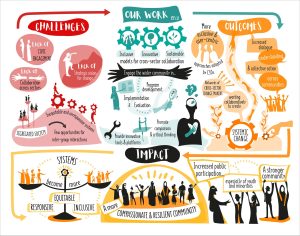
en.v’s Theory of Change (Credit: en.v/@blancheillustrates)
en.v’s community-led approach to social change is founded on bringing different groups together to work across differences. Building bridges that lead to social change is a complex process – and for en.v, it all starts with a story.
“In every single piece of our work, whether it’s with labour inspectors, activists in the migrant community, domestic workers, students, academics, or officials from the ministry, we always start with storytelling and connection,” says Eleanor. “We start with some sort of space where we try and get people into an intimate, authentic conversation with each other. It’s in every single thing that we do – having that first moment of building trust and connection, but in safety.”
As different people come together – many for the first time – to express themselves and listen to each other, these moments of connection are rich with opportunity. They help pave the path to reconciliation by the way of self-exploration, bonding, and movement-building. With long-held beliefs contributing to divisions within the community, this is an important step towards sustainable behavioural change.
“It changed my viewpoints on others around me. I lived in a bubble and thought that there wasn’t a community of people who genuinely wanted change too.” – en.v BUILD Ideathon Participant
The AWAKEN journey.
In supporting the migrant community, this storytelling can involve facilitating conversations between workers and employers and creating space for both groups to reflect on their experiences with their peers. For example, generations-long employment practices in the Gulf shape how employers view domestic workers and how domestic workers view themselves. Through dialogue, en.v encourages everyone to practice self-inquiry and reflection. Sharing one’s story and listening to others serves as a foundational, and often emotional, step towards reconciliation.
“With storytelling, we can think about roots and forces shaping our value systems,” says Eleanor. “We can ask questions: what’s your power in the society? What privilege do you have? How do you move through the society? It’s ultimately a practice in building empathy, deconstructing a lot of the cultural norms, and thinking about how we relate to one another.”
One example of a project defined by storytelling is en.v’s Women’s Circle Project. Held in partnership with the International Labour Organization’s FAIRWAY Project, it brings together female employers of domestic workers in safe spaces to talk about employment practices. These Women’s Circles help to shift employer mindsets, leading to improved relationships and increased fair treatment of workers.
Storytelling with the migrant community also focuses on understanding values and shifting mindsets, while also caring for the deep traumas felt by the community. Their experiences in Kuwait are often defined by deep feelings of loss: a loss of self while facing exploitation at work and having to support family back home, and a loss of community due to the transient, impermanent type of residency available under the kafala system.
In response, en.v uses storytelling to help the members of the migrant community create a new sense of self and belonging, which can help strengthen their resiliency, increase feelings of agency, and promote healing – an empowering process that helps unlock doors to a new future.
Mohammed explains this process is essential for empowering community-led action: “If you want for people to really feel like they want to change this place, they first have to feel like they belong here. A lot of what we try to do in our work is try to create a space within Kuwait where they can at least feel like they belong to each other.”en.v helps create these spaces physically – with community gatherings such as its AWAKEN festival or its Aswatna program promoting inclusion in the country’s schools– and figuratively, through various activities such as Mapping Belonging and art therapies. Through different methodologies practiced in safe spaces, migrant and other traditionally silenced or marginalized communities are offered the opportunity to own, share, and rewrite their stories.

While the process of behavioural and systemic change is complex and challenging, these meaningful moments of storytelling are also important marks of progress. At the heart of this storytelling is a true sense of compassion and unity, says Eleanor: “It’s very intimate. It’s really loving work we do, that creates a space where people can really connect.”
With a vision of solidarity among communities in Kuwait, these emotional connections are the first step towards community wellbeing and healing.
en.v is a proud member of The Wellbeing Project’s Wellbeing in Higher Education Network. Learn more about en.v’s work to foster transformational leadership and community-building in the Gulf at www.envearth.com.



